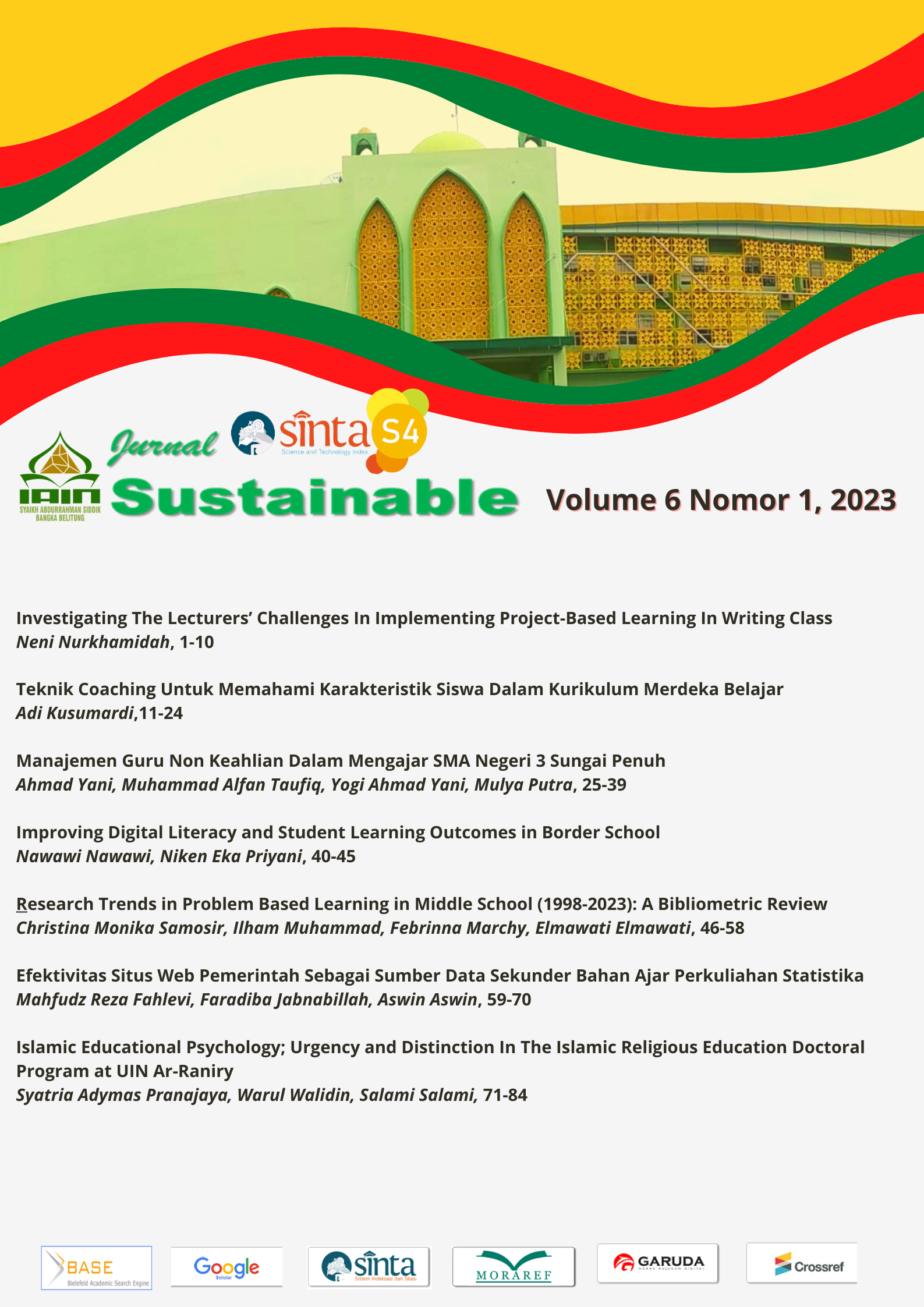Effectiveness of Memorizing Juz Amma Santri TPQ Nurul Qur'an with Reward Strategy
Abstract
A reward is a method used by someone to give someone appreciation for having done something right, so that someone can be more enthusiastic in doing certain tasks and more motivated in doing other things and the process is better so that someone is able to achieve the success of something he does. This research discusses giving rewards to students given by their ustadzah ustadz to reward them for what they have achieved. In its application, ustadzah ustadz can give rewards in the form of words, praise, goods, pins, grades or other things. Rewards or awards given to students can increase their self-confidence, foster motivation to learn, and develop themselves. Practically speaking, appreciation means an act of appreciation or respect. Rewards can also be called rewards that are like gifts.
Downloads
References
Dimyati. (2009). Belajar dan Pembelajaran. Rineka Cipta.
Febianti, Y. N. (2018). Peningkatan Motivasi Belajar dengan Pemberian Reward And Punishment yang Positif. Edunomic : Universitas Swadaya Gunung Jati Cirebon, 6(2), 99.
Indrakusuma, A. D. (1973). Pengantar Ilmu Pendidikan. Usaha Nasional.
Undang-undang Republik Indonesia, Pub. L. No. 14 (2005).
Lubis, M. dkk. (2019). Partisipasi Komite Sekolah dalam Pencapaian Efektivitas manajemen sekolah dasar. At-Ta’lim: Media Informasi Pendidikan Islam, 18(2), 361.
Saptrians, R., & Kadir, M. (2022). Peran TPQ Dalam Pembentukkan Akhlakul Karimah Pada Anak Usia 7-9 Tahun. Journal Educandum, 8(1), 39.
Siddik, D. (2006). Konsep Dasar Ilmu Pendidikan Islam. Cita Pustaka.
Copyright (c) 2023 Ucik Nurul Hidayati, Sinta Putri Dewi, Zuli Dwi Rahmawati

This work is licensed under a Creative Commons Attribution 4.0 International License.






.png)
